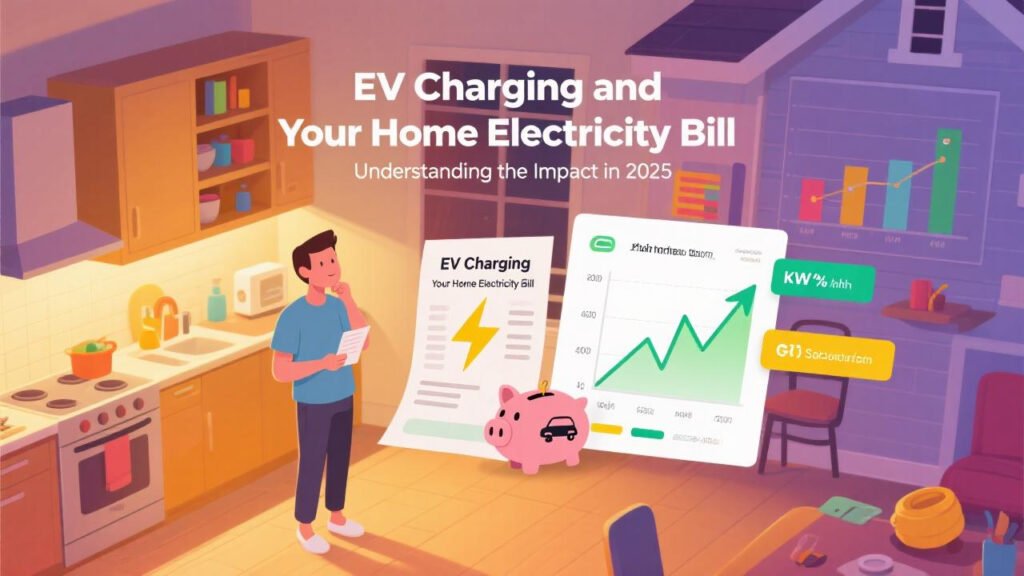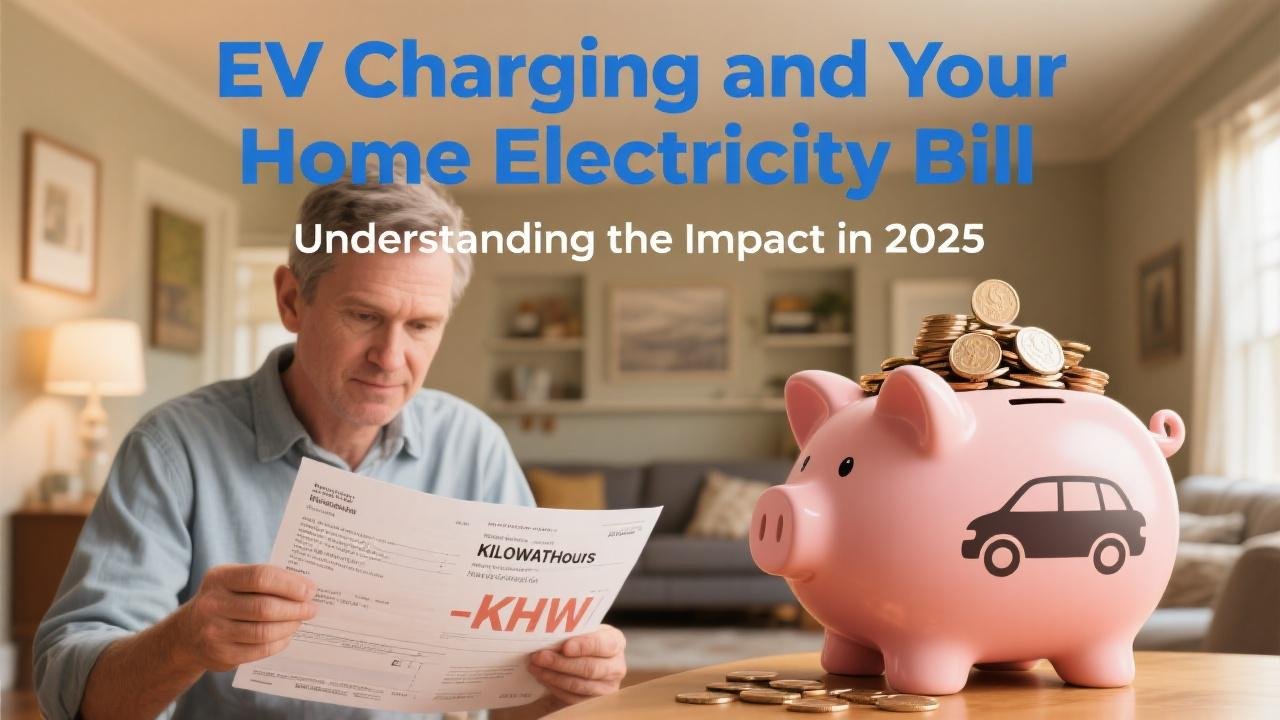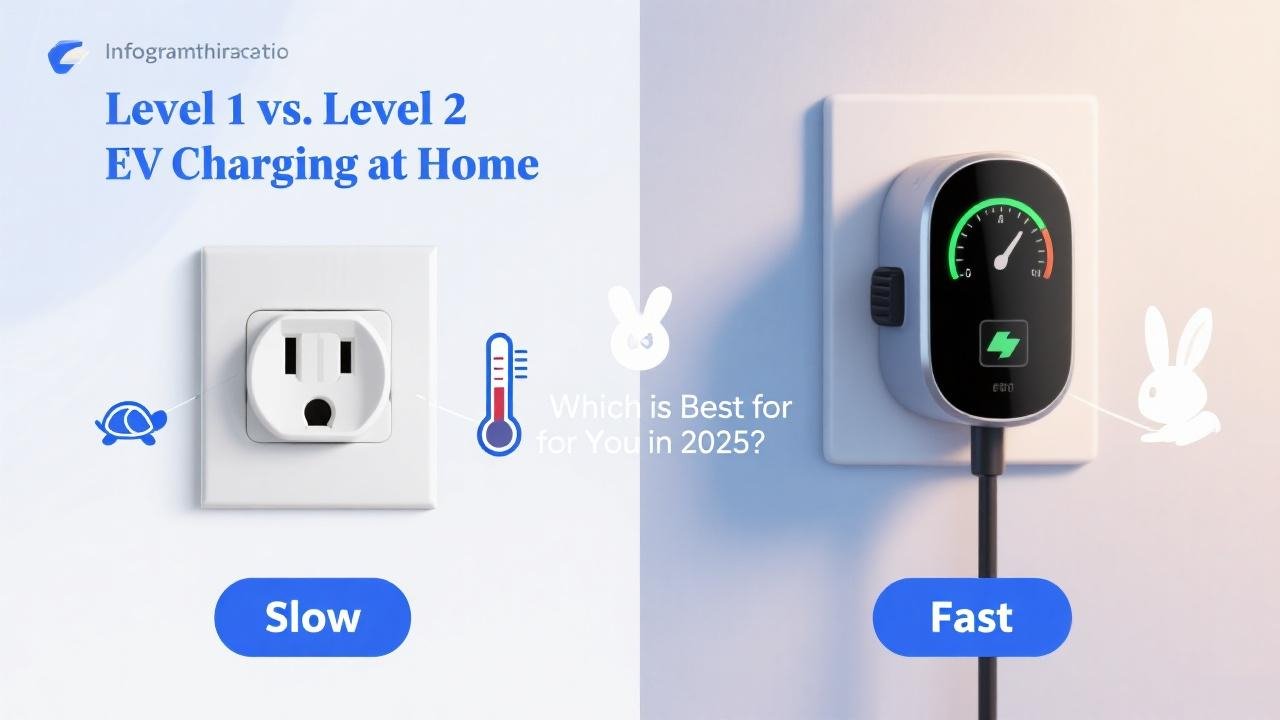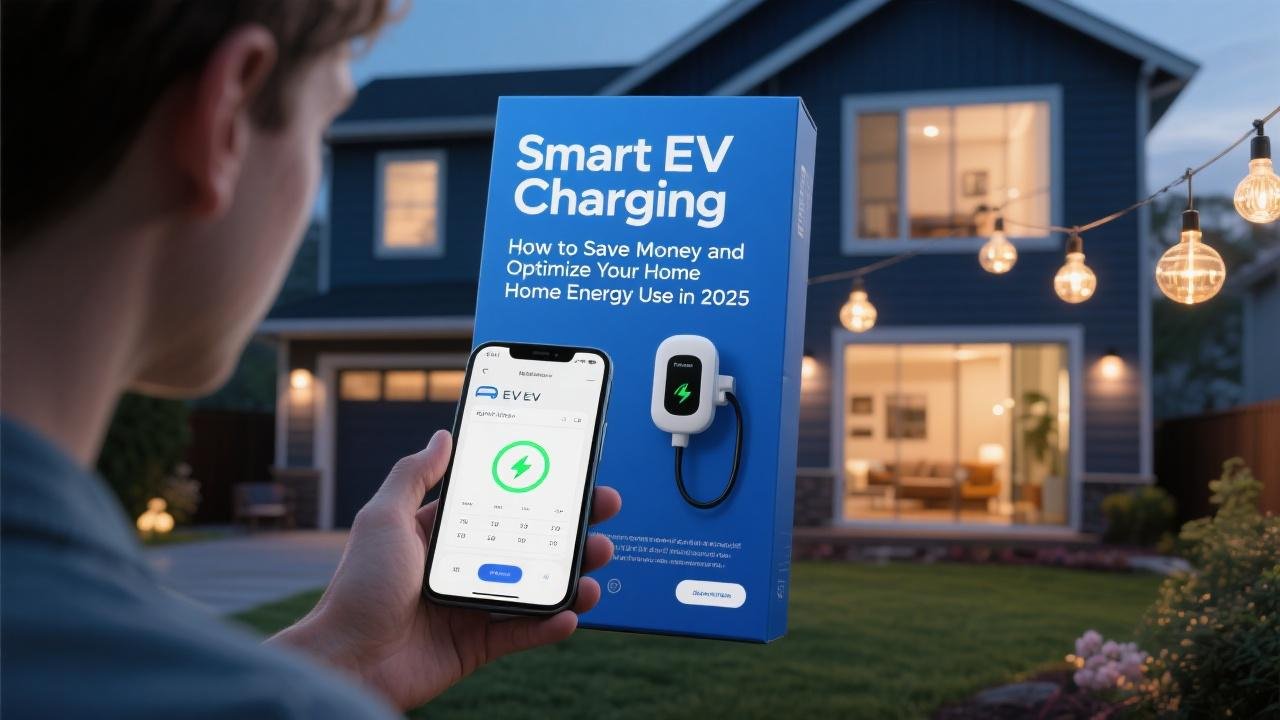Plugging In Without Breaking the Bank
Switching to an electric vehicle (EV) in 2025 means saying goodbye to volatile gasoline prices and hello to the convenience of “refueling” at home. However, many new and prospective EV owners naturally wonder: how much will charging my car increase my monthly electricity bill? While charging an EV at home will indeed add to your electricity consumption, it’s almost always significantly cheaper than paying for gasoline, and there are smart ways to manage and minimize this additional cost.
This guide will help you understand the impact of EV charging on your home electricity bill in 2025, factors that influence the cost, and strategies to keep your charging expenses as low as possible.
How Much Electricity Does an EV Use?
The amount of electricity your EV consumes depends on several factors:
* Vehicle Efficiency: Measured in kilowatt-hours per 100 miles (kWh/100 miles) or miles per kWh. More efficient EVs use less electricity to travel the same distance. For example, an EV might use around 0.32 kWh per mile.
* Battery Size (kWh): Larger batteries require more electricity for a full charge, but also offer longer range. A typical EV battery might range from 40 kWh to 100 kWh or more.
* Driving Habits and Conditions: Aggressive driving, extreme temperatures (requiring more heating or cooling in the car), and hilly terrain can reduce efficiency and increase energy consumption.
* Miles Driven: The more you drive, the more you’ll need to charge.
Estimating the Impact on Your Electricity Bill:
While precise figures vary, here’s a general idea of what to expect in 2025:
* Typical Monthly Increase: Homeowners often report an increase of $30 to $100 per month on their electricity bill due to EV charging.
* Cost per “Full Tank”: Charging a 40 kWh battery at an average U.S. residential electricity rate of around 16.88 cents/kWh (as of April 2024) would cost approximately $6.75. If you fully charge a few times a week, you can estimate the monthly cost.
* Example Calculation:
* If you drive 1,000 miles a month.
* Your EV efficiency is 0.32 kWh/mile.
* Your electricity rate is $0.17 per kWh.
* Monthly energy needed: 1,000 miles * 0.32 kWh/mile = 320 kWh.
* Estimated monthly charging cost: 320 kWh * $0.17/kWh = $54.40..
Remember: This is almost always significantly less than what you would spend on gasoline for the same mileage. Monthly savings compared to gas can easily be $80 to $130 or more.
Factors Influencing Your EV Charging Costs:
- Local Electricity Rates: This is the biggest variable. Residential electricity rates differ significantly by state, utility provider, and even by season. Check your utility bill for your current per-kWh rate.
- Time-of-Use (TOU) Rate Plans: If your utility offers TOU rates, charging during “on-peak” hours (typically afternoons/evenings) will be much more expensive than charging during “off-peak” hours (late night/early morning).
- Charging Level and Efficiency:
- Level 1 (120V): Slower charging can sometimes lead to slightly higher overall energy consumption due to longer charging times and potentially less efficient power conversion over extended periods.
- Level 2 (240V): Generally more efficient for regular home charging.
- Charging Habits: When and how often you charge.
- Home Energy Efficiency: While not directly related to the EV, if your home is very inefficient, your overall electricity bill will be higher, making the EV charging portion seem larger.

Reading Your New Electricity Bill with an EV:
Your utility bill will still show your total household electricity consumption in kWh. The main difference will be that this total now includes the energy used to charge your EV. Some key things to look for :
* Total kWh Consumed: Compare this to previous months/years before you had an EV to see the increase.
* Tiered Rates: If you’re on a tiered rate plan (where the per-kWh cost increases as you use more electricity), EV charging could push you into higher, more expensive tiers more quickly.
* TOU Rate Breakdown: If on a TOU plan, your bill should show how much energy was consumed during on-peak, mid-peak, and off-peak periods. This will highlight the cost impact of your charging schedule.
* Demand Charges (Less Common for Residential): Some utilities, especially for larger homes or those with very high consumption, might have demand charges based on your peak electricity usage during a certain period. High-power EV charging could potentially impact this if not managed.
* Net Metering Credits (if you have solar): If you have solar panels, your bill will also show credits for excess solar energy sent to the grid, which can help offset your total consumption, including EV charging.
Strategies to Minimize EV Charging Costs on Your Utility Bill:
- Charge During Off-Peak Hours: If you have a TOU rate plan, this is the single most effective way to save. Use a smart EV charger with scheduling features to automate this.
- Understand Your Utility’s EV Rate Plans: Some utilities offer specific rate plans for EV owners with even lower off-peak rates. Check with your provider.
- Charge with Solar Panels: If you have or are considering solar panels, charging your EV with your own solar energy during the day can significantly reduce or eliminate the charging cost from your bill.
- Use Workplace or Public Charging (If Free or Cheaper): Take advantage of any complimentary charging offered at your workplace or other locations if it makes financial sense.
- Monitor Your Charging: Use your EV’s app or your smart charger’s app to track energy consumption and costs. This helps you understand your usage and identify opportunities for savings.
- Don’t Always Charge to 100% (Unless Needed): For daily commuting, charging your EV battery to 80-90% is often sufficient and can be slightly better for long-term battery health. Only charge to 100% when you need the maximum range for a long trip.
- Improve Home Energy Efficiency: Reducing your overall household energy consumption through other efficiency measures (LED lighting, better insulation, efficient appliances) can help offset the increase from EV charging.
An Affordable and Convenient Way to “Refuel”
Charging your EV at home will lead to an increase in your electricity bill, but this cost is typically far outweighed by the savings from no longer buying gasoline. By understanding your local electricity rates, leveraging Time-of-Use plans with smart charging, and potentially integrating with home solar, you can effectively manage and minimize the impact of EV charging on your utility expenses in 2025. The convenience of waking up to a fully charged car, coupled with significant fuel cost savings, makes home EV charging a smart and economical choice for modern transportation.
If you’re looking to further optimize your home energy use, including EV charging, solar, and battery storage, consider exploring resources like EnergySage to learn more and connect with experts.



